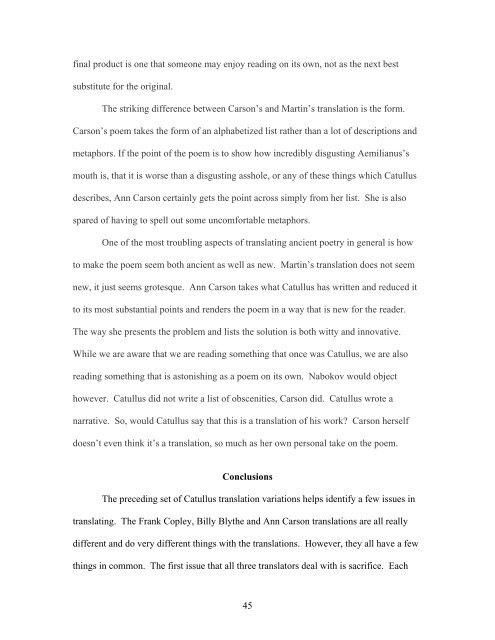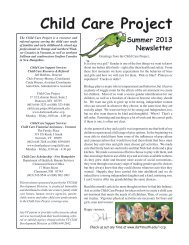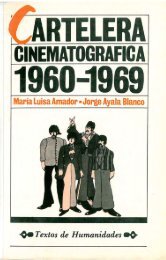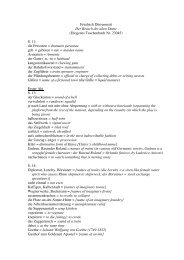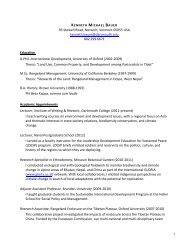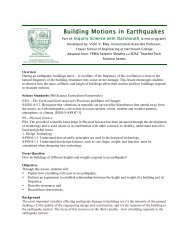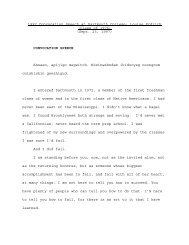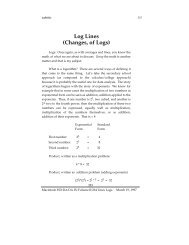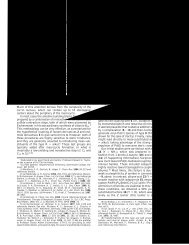A Log Cabin Out of Stone: - Dartmouth College
A Log Cabin Out of Stone: - Dartmouth College
A Log Cabin Out of Stone: - Dartmouth College
Create successful ePaper yourself
Turn your PDF publications into a flip-book with our unique Google optimized e-Paper software.
final product is one that someone may enjoy reading on its own, not as the next best<br />
substitute for the original.<br />
The striking difference between Carson’s and Martin’s translation is the form.<br />
Carson’s poem takes the form <strong>of</strong> an alphabetized list rather than a lot <strong>of</strong> descriptions and<br />
metaphors. If the point <strong>of</strong> the poem is to show how incredibly disgusting Aemilianus’s<br />
mouth is, that it is worse than a disgusting asshole, or any <strong>of</strong> these things which Catullus<br />
describes, Ann Carson certainly gets the point across simply from her list. She is also<br />
spared <strong>of</strong> having to spell out some uncomfortable metaphors.<br />
One <strong>of</strong> the most troubling aspects <strong>of</strong> translating ancient poetry in general is how<br />
to make the poem seem both ancient as well as new. Martin’s translation does not seem<br />
new, it just seems grotesque. Ann Carson takes what Catullus has written and reduced it<br />
to its most substantial points and renders the poem in a way that is new for the reader.<br />
The way she presents the problem and lists the solution is both witty and innovative.<br />
While we are aware that we are reading something that once was Catullus, we are also<br />
reading something that is astonishing as a poem on its own. Nabokov would object<br />
however. Catullus did not write a list <strong>of</strong> obscenities, Carson did. Catullus wrote a<br />
narrative. So, would Catullus say that this is a translation <strong>of</strong> his work? Carson herself<br />
doesn’t even think it’s a translation, so much as her own personal take on the poem.<br />
Conclusions<br />
The preceding set <strong>of</strong> Catullus translation variations helps identify a few issues in<br />
translating. The Frank Copley, Billy Blythe and Ann Carson translations are all really<br />
different and do very different things with the translations. However, they all have a few<br />
things in common. The first issue that all three translators deal with is sacrifice. Each<br />
45


